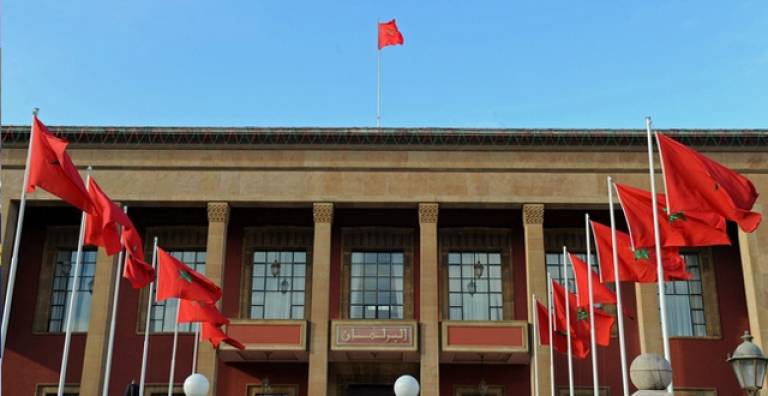The representativeness of Moroccans of the world in the 1st chamber is claimed by the parties of the majority and the opposition. For now, the three parliamentary groups have not yet made a decision about the treatment of these texts. Especially that these three proposals address the same subject.
The participation of MRE (Moroccans abroad) in the legislative elections continues to make waves. Three political parties, the PJD, Istiqlal and the USFP, presented legislative proposals paving the way for the involvement of Moroccans living abroad in the electoral process. These texts were to be examined on Thursday, by the Commission of the Interior of the House of Representatives, but the meeting was postponed to a later date. These texts meet most of the demands of associations of MRE for the cancellation of proxy voting, the ability to stand or the creation of legislative districts in the host country.
The three parliamentary groups refer to Article 17 of the Constitution, which enshrined the right of MRE to enjoy full citizenship, including the right to vote and stand for election. They also allude to the various royal speeches that called MRE to enjoy those rights.
The PJD party did not miss this opportunity to taunt the other formations, recalling that "previous governments have left this issue dragging," according to the memo presenting their bill. Overall, the measures provided concern more than 5 million Moroccans spread over different continents.
The three parliamentary groups agree that the Moroccan community abroad is facing a series of specific constraints. "Hence the importance of ensuring its direct involvement in the control of the government but also in the development of public policies,"
This involvement requires the reform of a series of articles of the Organic Law on the House of Representatives; namely, the article on the number of seats in the 1st House.
The idea is to raise this number to ensure the participation of MRE without affecting the current distribution of local constituencies. Thus, the USFP offers to go from 395 to 425 seats, to allow access to 30 new members representing the Moroccan expatriates.
The Istiqlal's bill goes in the same direction. But the number of seats provided for MRE is increased to 60. This will "respect the proportionality rule adopted in the distribution of seats at the House of Representatives." The Istiqlal group, in order to be more accurate, reserved 42 seats in the European constituency, 9 for Africa, 6 in the Americas and 3 for Arab and Asian countries. The text presented by the PJD seems more reserved in the number of representatives of the MRE. Their goal is "the creation of four constituencies abroad, with at least 4 seats, predicting a merger of the districts of the host countries with less than 500,000 residents."
However, the PJD group also wants to include representatives of the world's Moroccans in the national list. But "under the condition that their classification is equivalent to 5% of the seats in this list."
The three parliamentary groups have focused on the role of diplomatic and consular representations in the establishment of the electoral process. The three texts have predicted that the ballot is conducted in local embassies or consulates. This is what will solve the problem of proxy voting, widely criticized by various political parties. The rules for applying direct vote will be determined by decree, according to the proposals.
The group of the USFP also provided that the constituencies are created in the countries in which Morocco has a diplomatic or consular representation. Similarly, the voter will be developed on the basis of consular data.
Incompatibility
The three parliamentary groups emphasized in the presentation notes of their bills on the added value of MREs, "generally have a great education," and that "can be a great contribution in the process of political and economic development".
However, conditions have been laid, particularly to avoid slippages. Thus, Article 6, concerning the incompatibility criteria will be amended. The idea is to prohibit MRE applicants who have representation missions, government or public accountability in the host country.
With L'économiste

